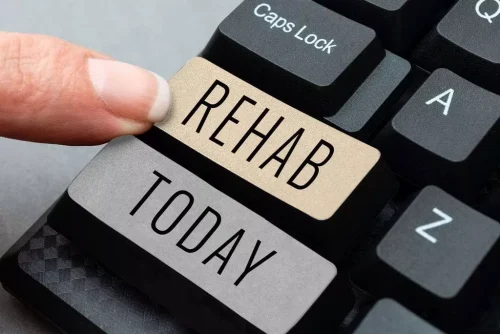Dementia risk lowered with minimal alcohol use, study finds, but its complicated

The doctor will also do a full physical examination and take a detailed history of the person’s symptoms and how they are affecting their life. They should also take an account from someone who knows the person well, as this can help if the person has gaps in their memory. The doctor may also ask about problems with mood, such as anxiety or depression. Harmonized SNP exposure–outcome datasets and SNPs indicated asoutliers are available in Supplementary Table 2. The causal estimates for the IVW, MR-Egger andWeighted median analysis, number of SNPs and number of outliers removed for eachexposure – outcome pair are presented in Table 1. Causal estimates prior toand after outlier removal are presented in Supplementary Table 3.
Just 2 ounces of this snack could help lower cholesterol, reduce heart disease risk

However, many support services have a ‘complex needs’ team which are better equipped to support the different needs of someone with alcohol-related ‘dementia’. They may also find it very difficult to stay motivated if they do stop drinking, because losing motivation is a symptom of dementia. Read our advice on supporting a person with dementia who has depression, anxiety or apathy.
Ketamine Alters Brain Activity in Treatment-Resistant Depression, Study Finds
They may be given special prescription drugs to reduce their craving for alcohol. They will also need to take high-dose thiamine (vitamin B1) tablets and eat a healthy, balanced diet, and have counselling or ‘talking therapies’. If a person has alcohol-related ‘dementia’ they will struggle with day-to-day tasks.
- The first part of treatment for alcohol-related dementia aims to help you stop drinking alcohol.
- More research is necessary on the causes of both tinnitus and dementia to fully understand why tinnitus appears to increase the risk.
- Regressionlines represent the causal effect of the exposure on the outcome using IVW,MR-Egger and Weighted median to estimate the causal effects.
- Research to identify potential opportunities to reduce the risk of dementia is much needed but challenging given the multiple, complex factors which may contribute to the development of the disease.
Data Availability Statement
They’ll all help you feel safe, seen and heard while you get used to any changes in your brain and body. But your providers will help you find treatments that manage the symptoms and help you stay safe, no matter what. On the Podcasts page a Back To Back Sounds playlist called Reminiscence provides a touchstone for audiences to prompt memories and discussion on key events from the 40s to the 90s, including the Jubilee, school day recollections and walks through UK countryside. And in music a separate Back To Back Sounds playlist called Music to Reminisce features a range of music from across the decades, as well as relaxing sounds. A pop-up channel called Memories will feature programmes from each collection and will run 24 hours a day as a live stream on BBC iPlayer. While viewing these programmes may not lead to immediate, dramatic responses for those living with dementia, studies show they can have significant value in helping create connections and moments of recognition with their is alcoholic dementia real friends and family.
Since we tend to accumulate more diagnoses as we get older, we often accumulate more prescriptions as we age. A report from the Lown Institute found that nearly half of older adults take five or more prescription drugs — and a lot of them may not go well with alcohol. Sure, a nightcap may help you relax and drift off, but as soon as the booze is through your system, you’re likely to wake up and struggle to get back to sleep. The older you get, the more likely you are to fall, which can be catastrophic if you’ve got brittle bones. Even sober, older adults are more prone to falls, so knocking back a few drinks can get extra dangerous. What might have been a tipsy stumble when you were younger, could become a hip-breaking disaster.
- Just like your body inevitably changes with age, your drinking habits most likely need adjustments, too.
- By submitting a comment you agree to our comments policy.Please do not post any personal information about yourself or anyone else, especially any health data or other sensitive data.
- At our Drug Rehab Boston, we offer compassionate, evidence-based care tailored to your needs.
Alcohol Use Disorder and Dementia: A Review

Heavy drinkers are more likely to have anxiety and depression than people who drink less. As you get older, you’re more likely to live with chronic pain and you may be more susceptible to depression. While either one of these conditions may make you want to pour yourself a drink, think twice before you do.
The Comprehensive Guide to Alzheimer’s Disease Pathophysiology: Understanding the Mechanisms…
Over-consumption of alcohol was especially common in study participants diagnosed with early-onset dementia or Alzheimer’s disease. It is clear that excessive drinking increases a person’s risk of dementia compared with not drinking at all. These reviews were included in the World Alzheimer’s Report 2014 and the National Institute for Health and Care Excellence (NICE) Guidance.

Care at Cleveland Clinic
The results from this study should be interpreted in conjunction with somelimitations. First, we cannot be certain the selected SNPs do not violate theexclusion-restriction assumption. However, we did use MR-PRESSO and MR-Eggerregression to estimate the extent to which heterogeneity and pleiotropy may bias thereported results, and have reported those results that are robust to the violationsof MRs assumptions. Second, for alcohol dependence we used nominally significantSNPs, which may violate the non-zero affection assumption.
It is often linked to nutritional deficiencies and alcohol’s toxic effects on the brain. For a clear Halfway house diagnosis, the person needs to have these symptoms even when they have stopped drinking and are not suffering from the effects of alcohol withdrawal. The doctor will also need to make sure that these symptoms don’t indicate another type of dementia, such as Alzheimer’s disease or vascular dementia. The projected worldwide prevalence of dementia is expected to reach 74.7million in 2030 1.
Support for carers, friends and family

For more information on addiction treatment, visit NIAAA for comprehensive resources. To understand how alcohol might influence dementia risk, it’s essential to first examine its effects on the brain. Alcohol is a central nervous system depressant that can have both immediate and long-term impacts on brain function. As such, the current observational studies are limited by issues ofconfounding and reverse causality. In the absence of randomized control trials, anovel method for estimating causal effects of risk factors in observational studiesusing genetic variants is Mendelian randomization (MR). MR found robust evidence of a causal association between alcoholconsumption and an earlier AAOS, but not alcohol intake and LOAD risk.


